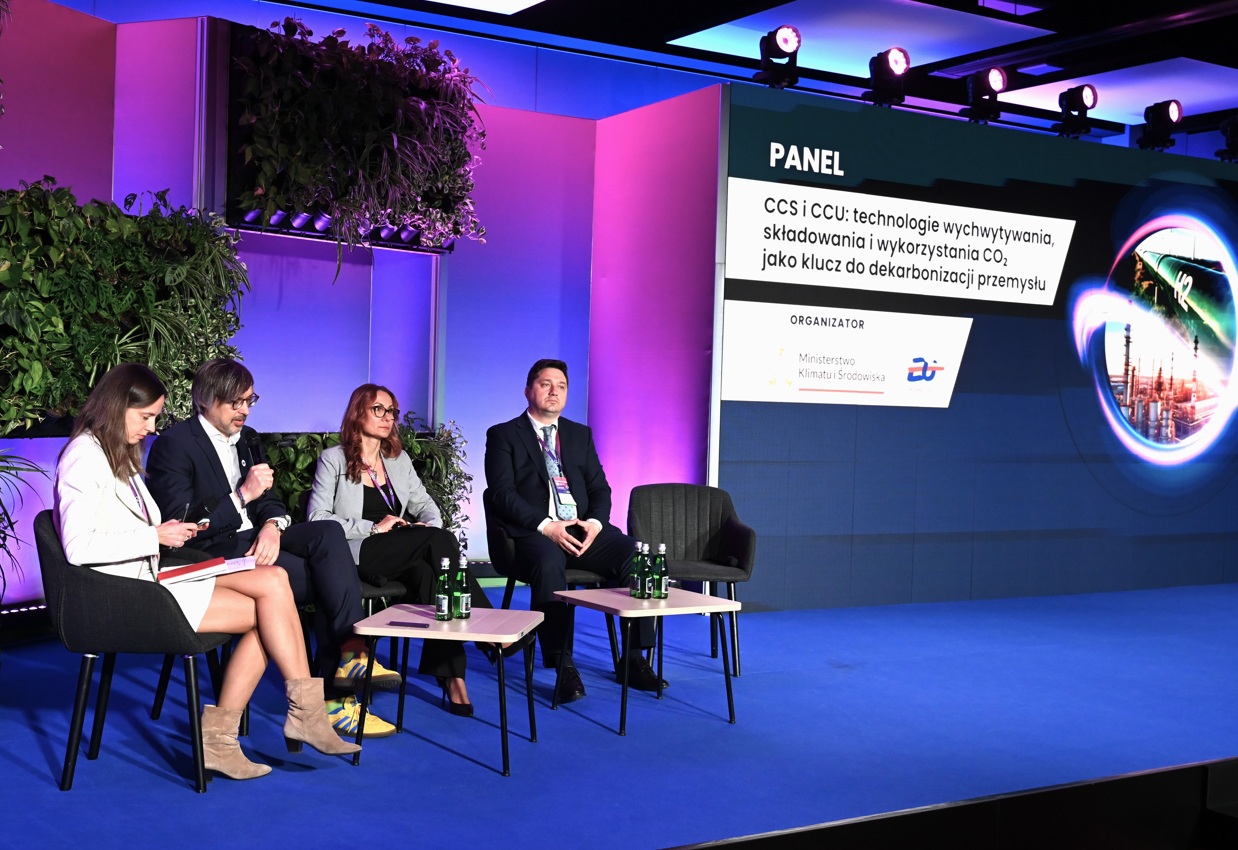Poland is currently the fourth largest emitter of carbon dioxide in the European Union, accounting for approximately 10.5% of total greenhouse gas emissions. This is due to the fact that the national economy is largely based on energy-intensive industries. At the same time, these industries employ at least 400,000 people and generate a proportionally higher added value than the EU average, without taking into account the costs of raw material consumption.
Consequently, investments in CCS/U technologies are crucial to achieving ambitious emission reduction targets and maintaining competitiveness. The European Union has recently accelerated its efforts to harmonise CCS/U regulations in order to help achieve the announced target of 50 million tonnes of annual CO2 capture capacity by 2030. CCS technologies are seen as an opportunity to build a new branch of the economy that will contribute to employment and revenue growth.
%20(1).jpg)
To support the development of the CCS/U ecosystem in Poland, the Ministry of Climate and Environment and the World Bank organised a workshop with stakeholders on 27 May 2025. The aim of the meeting was to identify opportunities and barriers to the development of the new industry, define the necessary milestones and harmonise knowledge on the requirements necessary for the creation of a CCS/U ecosystem in Poland.
Holcim, as a pioneer in the implementation of modern technologies, took part in the discussion and presented a full-scale CCS project - Kujawy Go4ECOPlanet.

‘Industry in Poland is facing the challenge of decarbonising its value chains while taking into account the current market conditions, such as high energy costs and an insufficient choice of support instruments for companies investing in decarbonisation,’ says Radosław Gnutek, CCS Director at Holcim Poland. He adds: "Decarbonisation is at the heart of Holcim's business strategy. The CCS project at the Kujawy Cement Plant is of key importance to the company, as it will help it to continue operating under increasingly stringent emission reduction requirements, as well as helping other companies that are modernising their industrial processes and want to minimise their environmental impact. Go4ECOPlanet is a practical and effective example of supporting the security of the energy sector and the competitiveness of industry. The project uses new technologies based on European solutions that can be replicated in other branches of the economy. This will reduce the costs of subsequent implementations and accelerate their entry into the commercial phase.’
The workshop was attended by representatives of the government, international and local organisations, companies representing emitting industries, CCS operators, investors and financial institutions. The event was a platform for in-depth dialogue, exchange of experiences and building synergies between the public and private sectors.